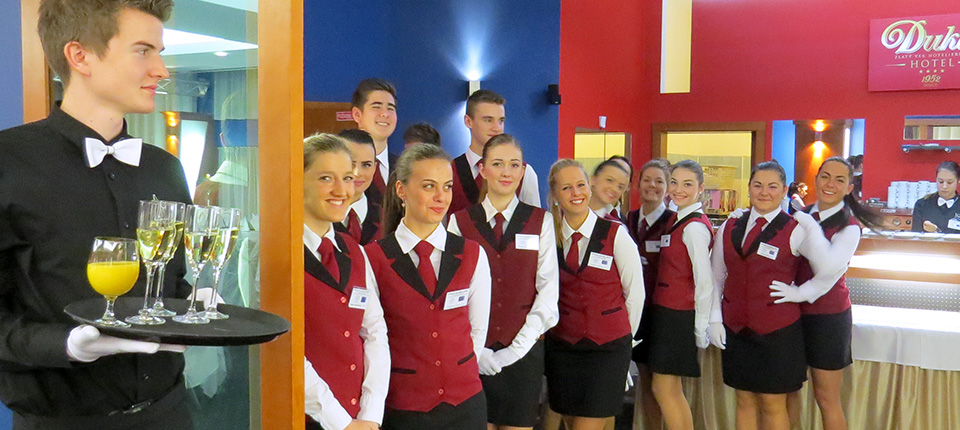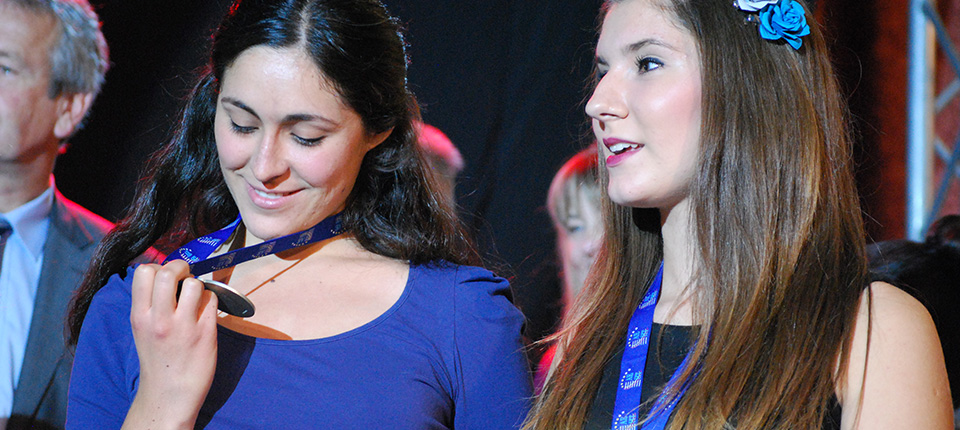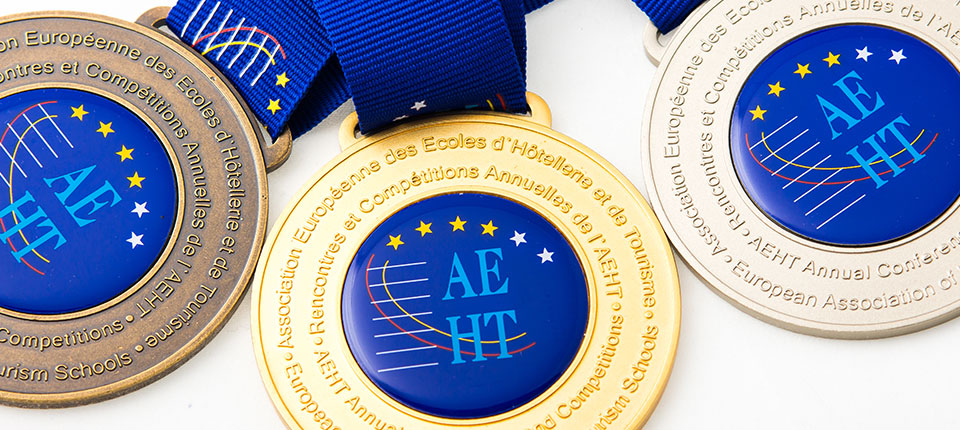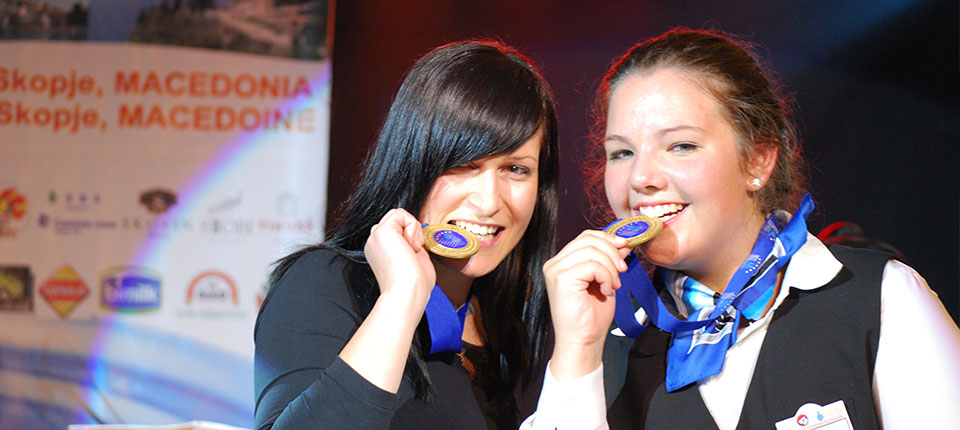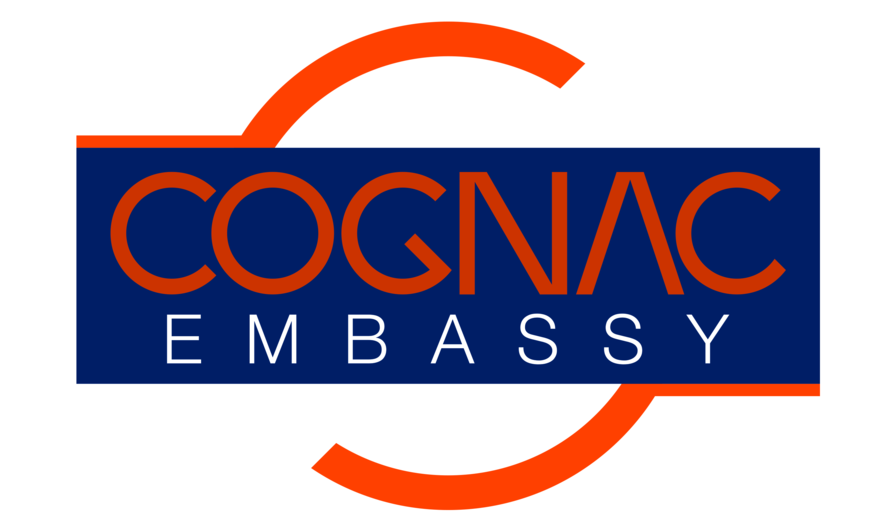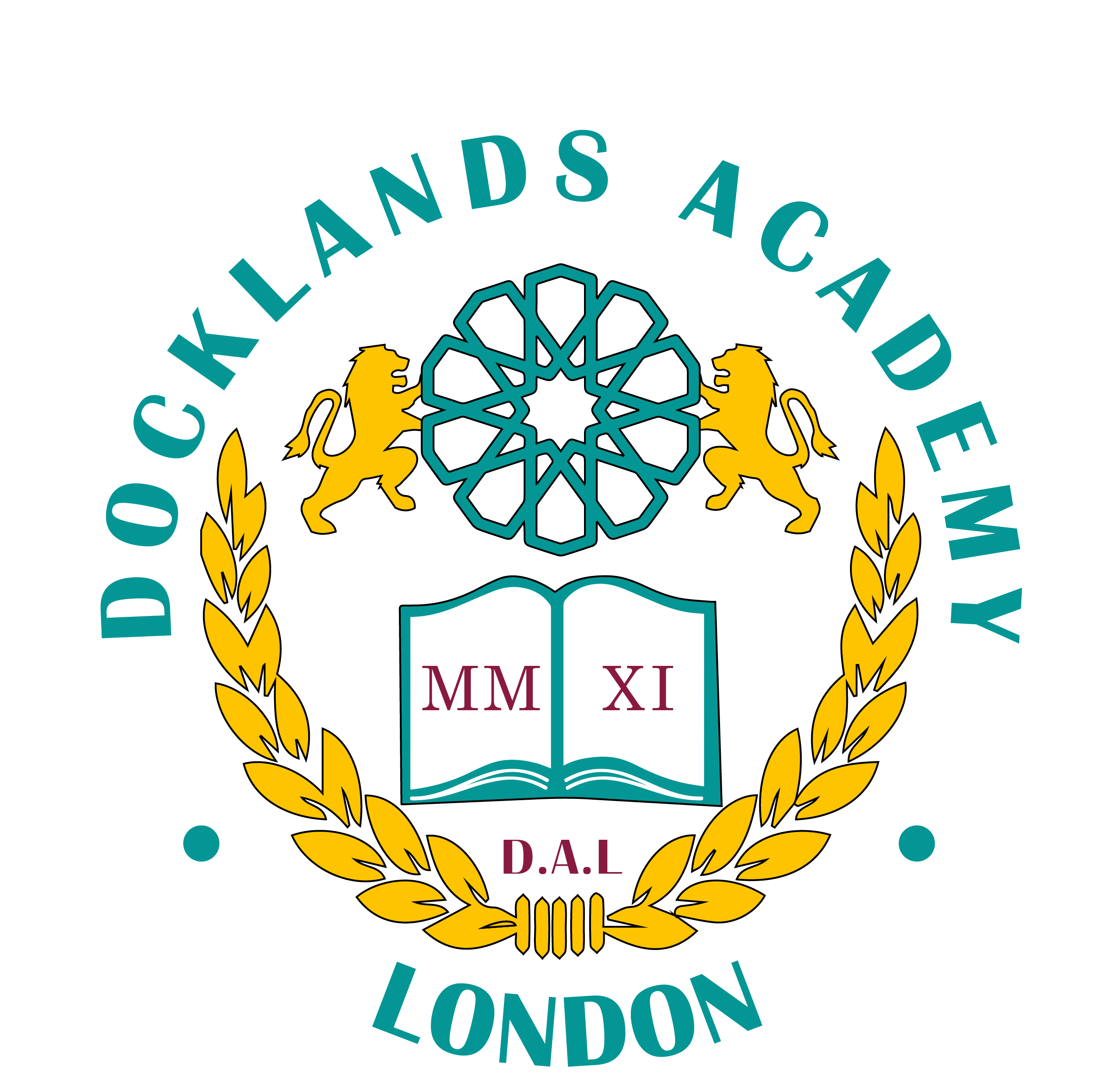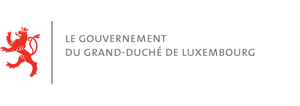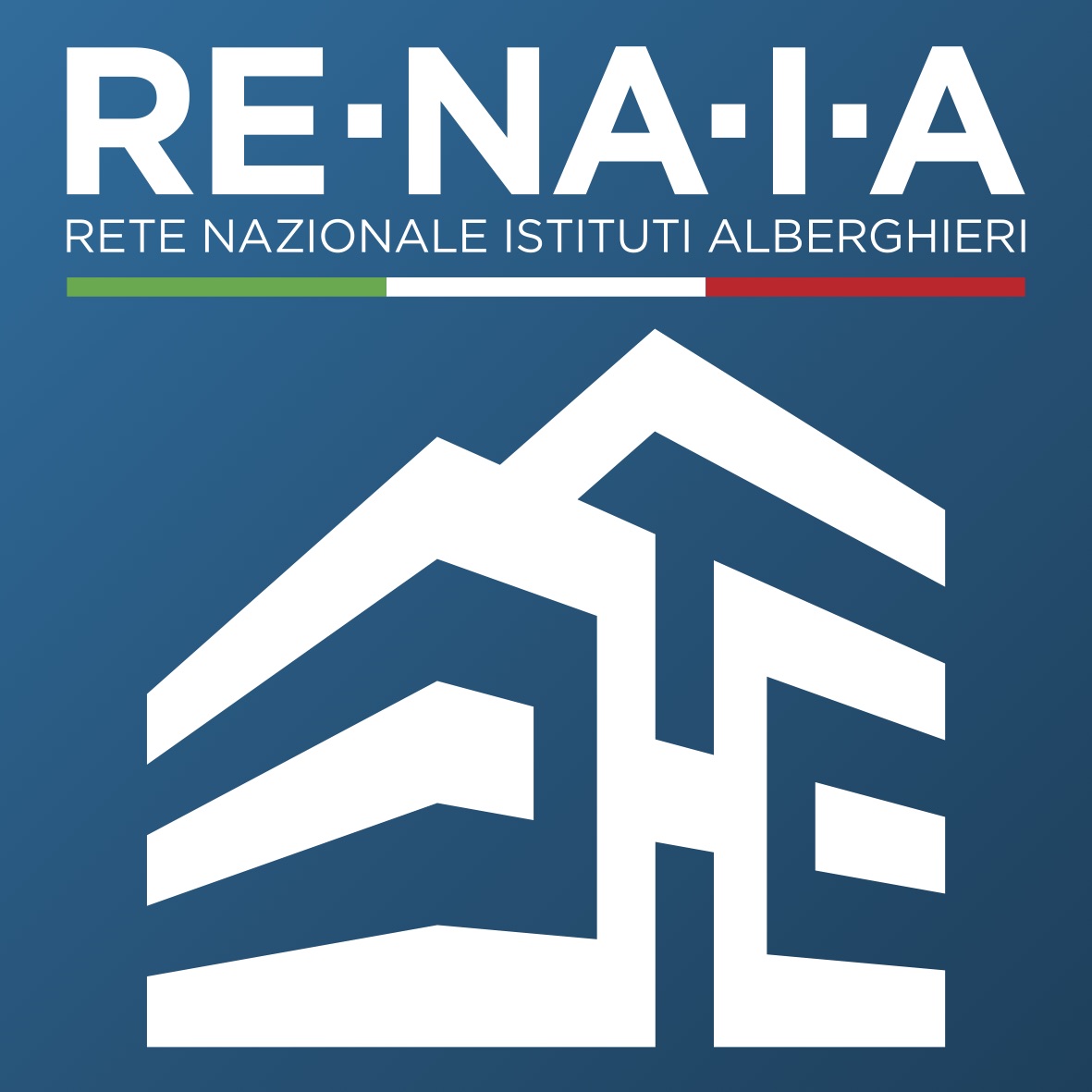The Fįilte Ireland team had also taken great care over the organisation of the cultural programme, offering a whole array of excursions, walks, workshops and lectures which were arranged throughout our stay.
Let us summarise: a visit to Muckross Gardens with an optional and highly instructive visit to the ruins of the abbey, to the house and its park planted with magnificent trees.
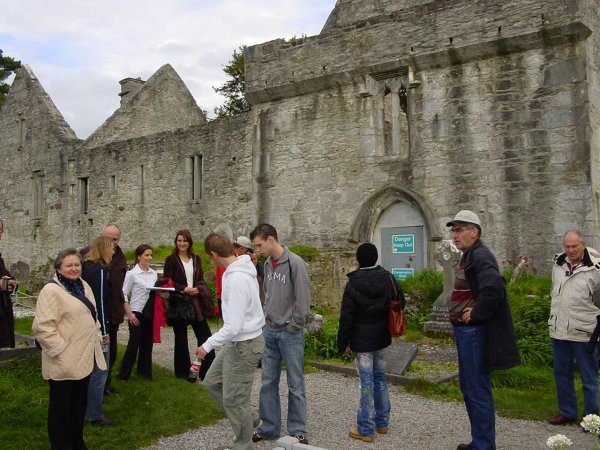
A walk – sometimes in the rain – following the footsteps of the old miners (Old Mining trail walk)
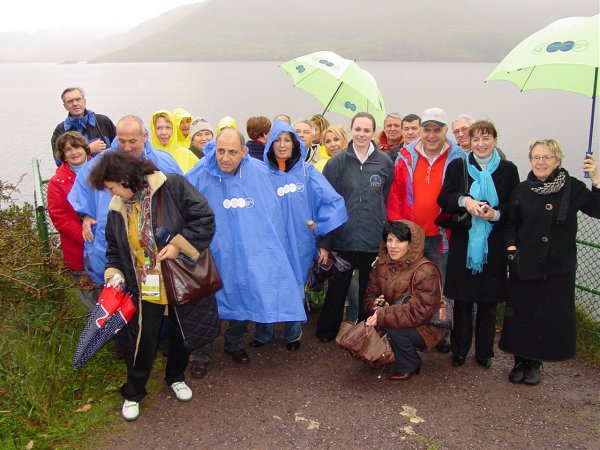
a guided tour of Killarney’s best springs, tasting of traditional Irish produce (wholemeal bread, whiskey and Irish coffee), sports demonstrations, Irish dance workshop
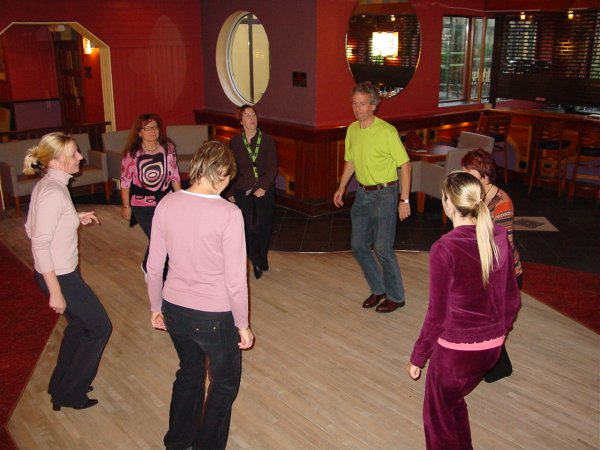
Irish music every night in the Green Room or in O’D’s Chestnut bar, excursion to the Dingle Peninsula or a stroll on Rossbeigh Beach, a treasure hunt in Killarney. It was a real marathon of a programme but it enabled everyone to follow at their own pace.
THE LECTURES
In addition three fascinating lectures enabled an attentive audience to discover interesting aspects of Ireland’s dynamism.
Dame Geraldine Keagan, headmistress of St Mary’s College, a state school in Derry, Northern Ireland, spoke on the subject of ‘A Case Study on Implementing and Sustaining Change Within the Education Sector’
 With great humour and deep conviction she narrated the history of this school: 20 years ago it had been one of the ‘failing schools’ but, thanks to a concerted effort by the teachers, the parents and the pupils it became increasingly successful and even won, on two occasions in 2001 and 2006, a European prize for its excellence. What she modestly omitted to say was that the fundamental reason for this change was her resolute and smiling action as head of the school.
With great humour and deep conviction she narrated the history of this school: 20 years ago it had been one of the ‘failing schools’ but, thanks to a concerted effort by the teachers, the parents and the pupils it became increasingly successful and even won, on two occasions in 2001 and 2006, a European prize for its excellence. What she modestly omitted to say was that the fundamental reason for this change was her resolute and smiling action as head of the school. Another in the series of workshops was that delivered by Ben Tiggelaar on the subject of ‘How to bring about
 change in education and industry’.
change in education and industry’. The speaker was delightfully convincing, equally so whether being serious or humorous, and using the techniques of questioning received wisdom and audience participation, this bundle of energy dismantled the mechanisms of man’s dislike of progress. And he showed us how to overcome these blocks by the application of simple procedures. For example, ‘If you want to lead others, you have to lead yourself first.’ Or ‘not knowledge but action’. This is easier said than done, of course, but to judge from people’s smiles as they left the hall, the audience had at least entered into the spirit of the talk.
THE VIRTEX WORKSHOP
Among all this activity was included another vital aspect of the AEHT’s work – its involvement in the teaching of languages; this is an essential component in the European collaboration which is a fundamental aim of the AEHT, and it is no coincidence that many of our active members – including several presidents and vice-presidents – are language teachers.
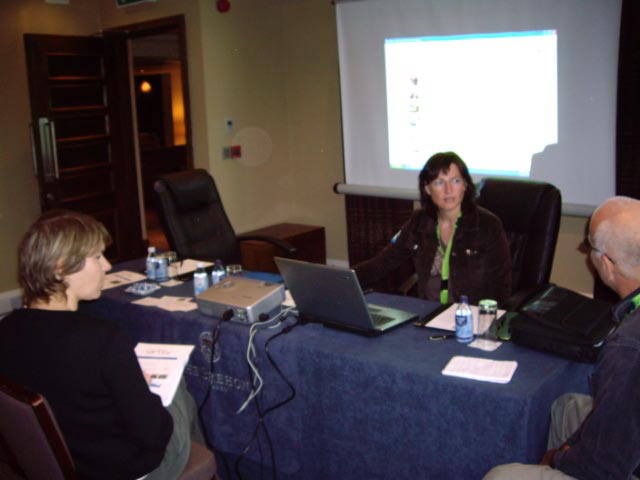
The AEHT has organised several events for the sharing of resources and know-how for language teachers, and is involved in the Virtex (VIRTual EXperiences) project, coordinated by Horizon College in the Netherlands.
On Friday morning Christiane Puchner and John Rees Smith ran a workshop to present the programme: delegates were shown a series of modules aimed at preparing students for their placements in hotels and restaurants; the materials are suitable either for the classroom or for individual study. Those attending the workshop were able to have hands-on experience of the programme, and took away sample materials on CD-ROM.
Once complete, the entire suite of modules will be available to the AEHT membership. Initially the languages offered are English and German, but in due course a French version may be launched.
Take a look at Virtex at http://www.waicicu.com/virtexsite/
Last in the series was a seminar intended especially for students and given by John Mc Kenna and the NCCRI, on the subject of ‘The challenges of working with a multicultural work-force’. Unfortunately this event did not attract as large an audience as had been hoped, probably because of the timing, at the end of the day when students were finishing their day of competitions or preparing for the next day’s. It was a pity to miss such an enticing subject, and a shame for the speaker. But in spite of the small audience, the event provoked lively discussions!
Last in the series was a seminar intended especially for students and given by John Mc Kenna and the NCCRI, on the subject of ‘The challenges of working with a multicultural work-force’. Unfortunately this event did not attract as large an audience as had been hoped, probably because of the timing, at the end of the day when students were finishing their day of competitions or preparing for the next day’s. It was a pity to miss such an enticing subject, and a shame for the speaker. But in spite of the small audience, the event provoked lively discussions!



